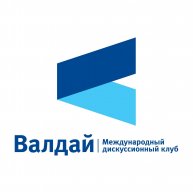80th Anniversary of the UN Charter. An Expert Discussion
On June 26, the Valdai Discussion Club hosted an expert discussion dedicated to the place and role of the United Nations in the changing world order, timed to coincide with the anniversary of the signing of the UN Charter in 1945. June 26, 2025, marks the 80th anniversary of the signing of the UN Charter in San Francisco. The creation of the United Nations laid the foundations for the post-war world order, and the provisions of the UN Charter became a key element of the system of international law. Unfortunately, in practice, many of the hopes and ideals associated with the UN have not been realised. In the context of the crisis of the world order, attempts to politicise the activities of the UN and replace the UN Charter with some "rules" that enshrine the dominance of the West in the apparatus of international organisations are becoming increasingly noticeable. At the same time, it cannot be denied that the UN remains unique and the largest platform for discussing global challenges and resolving crises. However, the question of its effectiveness and compliance with the realities of the 21st century continues to raise questions. The aggravation of crises in Europe and the Middle East reveal the problems of blocs in the General Assembly and the speed of the Organisation's response to security threats. What is the political significance of the UN Charter today? How effectively does the Organisation respond to new challenges? What are the limitations of the UN's activities today? How can we overcome the politicisation of its work? How strong is the solidarity of the countries of the world majority in defending their shared interests? The participants of the discussion will try to answer these and other questions. Speakers: Dmitry Polyansky, Deputy Permanent Representative of the Russian Federation to the UN in New York Taha Özhan, Director of Research, Ankara Institute (Turkey) Rasigan Maharajh, Chief Director, Tshwane University of Technology; Associate Research Fellow, Tellus Institute; Trustee, Canon Collins Trust; Elected Member, Academy of Science of South Africa Mikatekiso Kubayi, Researcher, Institute for Global Dialogue Associated with UNISA; Research Fellow, Institute for Pan African Thought and Conversation Marco Fernandes, Brazilian Representative at the BRICS Civil Council. Moderator: Oleg Barabanov, Programme Director of the Valdai Discussion Club.
On June 26, the Valdai Discussion Club hosted an expert discussion dedicated to the place and role of the United Nations in the changing world order, timed to coincide with the anniversary of the signing of the UN Charter in 1945. June 26, 2025, marks the 80th anniversary of the signing of the UN Charter in San Francisco. The creation of the United Nations laid the foundations for the post-war world order, and the provisions of the UN Charter became a key element of the system of international law. Unfortunately, in practice, many of the hopes and ideals associated with the UN have not been realised. In the context of the crisis of the world order, attempts to politicise the activities of the UN and replace the UN Charter with some "rules" that enshrine the dominance of the West in the apparatus of international organisations are becoming increasingly noticeable. At the same time, it cannot be denied that the UN remains unique and the largest platform for discussing global challenges and resolving crises. However, the question of its effectiveness and compliance with the realities of the 21st century continues to raise questions. The aggravation of crises in Europe and the Middle East reveal the problems of blocs in the General Assembly and the speed of the Organisation's response to security threats. What is the political significance of the UN Charter today? How effectively does the Organisation respond to new challenges? What are the limitations of the UN's activities today? How can we overcome the politicisation of its work? How strong is the solidarity of the countries of the world majority in defending their shared interests? The participants of the discussion will try to answer these and other questions. Speakers: Dmitry Polyansky, Deputy Permanent Representative of the Russian Federation to the UN in New York Taha Özhan, Director of Research, Ankara Institute (Turkey) Rasigan Maharajh, Chief Director, Tshwane University of Technology; Associate Research Fellow, Tellus Institute; Trustee, Canon Collins Trust; Elected Member, Academy of Science of South Africa Mikatekiso Kubayi, Researcher, Institute for Global Dialogue Associated with UNISA; Research Fellow, Institute for Pan African Thought and Conversation Marco Fernandes, Brazilian Representative at the BRICS Civil Council. Moderator: Oleg Barabanov, Programme Director of the Valdai Discussion Club.
